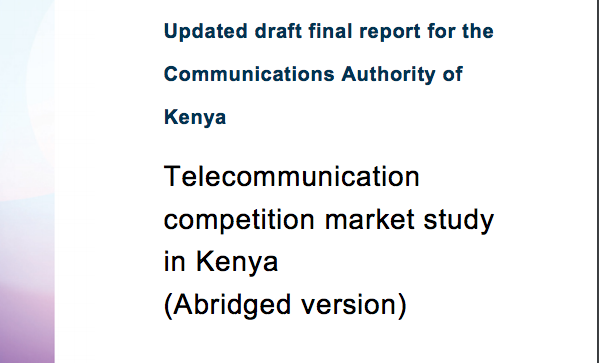In late 2015, the Communications Authority of Kenya commissioned an independent study of the telecommunication sub-
The authority through a competitive bidding process, then hired MS Analysis, a UK based global telecom consulting and research company to conduct a study on the same and give recommendations on the way forward. The study was conducted over a one year period between May 24, 2016, and May 12, 2017 and in accordance with relevant laws.
The report, which was made public a few weeks ago contains Analysys Mason’s findings and recommendations based on data collected from the main stakeholders. It recommends various ways to regulate the telecom sector in the areas such as mobile money, mobile communications, termination rates, call tariffs, and tower-sharing.
“The study was specifically meant to foster a competitive telecommunications market, which can attract sustainable investments, provide more choices to consumers and increase consumer welfare through the provision of affordable high-quality services,” the CA said.
Safaricom to Bear the Greater Impact of the Recommended Remedies
In an attempt to address competition in the telecom sector, the dominant telco will be affected more than other mobile operators and so will its customers. For instance, the report recommends that Safaricom should make its towers accessible to other Tier 1 mobile operators that have lower tower market shares. Additionally, Safaricom customers could also pay higher call tariffs if the CA implements the remedies recommended.
Therefore, as these remedies attempt to increase fair competition in the telecom market, they forget that both Airtel and Safaricom had the same opportunities for growth from the very beginning. However, Airtel, then known as Kencell, did not capitalise on those opportunities the same way that Safaricom did.
Some of the mistakes that Kencell made were targeting high-end customers and overlooking the rest of the population, rebranding several times – from Kencell, Celtel, Zain, and then to Airtel – and poor management and marketing strategies.
So should Safaricom bear the consequences of having made better strategies? The answer is debatable. Still, one thing that is clear no matter which side of the debate you take is that the customer’s needs should be protected. As a result, the CA should consider the customer’s interest as it implements the report’s recommendations.



